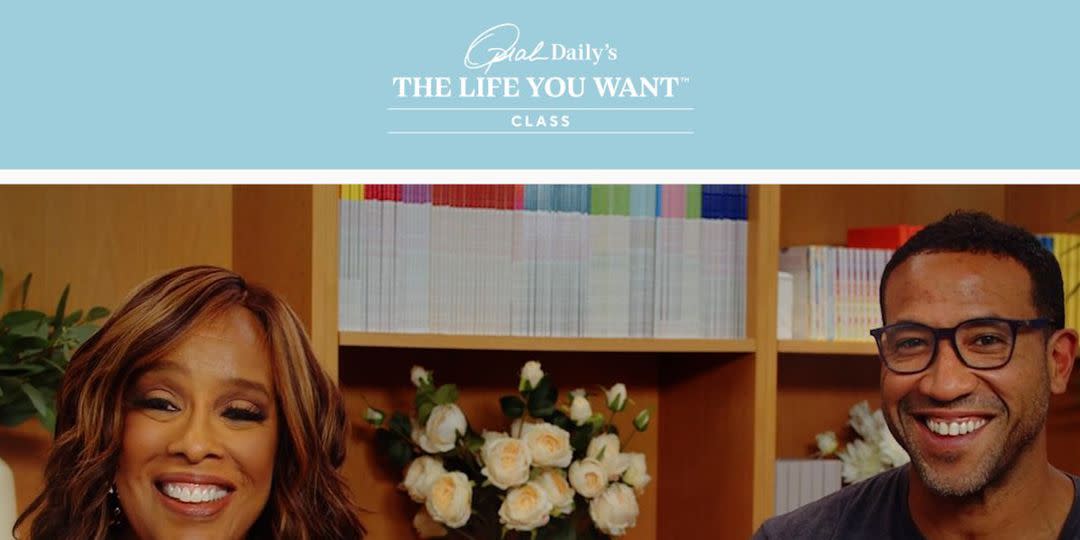This Houston Chef Used Food to Invest in His Community

Oprah Daily is partnering with Talenti Gelato on a new series, “Cooks for a Cause: Making the World a Better Place One Meal at a Time,” to showcase chefs who have made it part of their business to positively impact their hometowns. Chris Williams is one such restaurateur. When the pandemic darkened Houston’s doorstep, he kept his team in the kitchen by feeding first responders, elderly care facility residents and historically black and underserved communities. Then came a voter registration drive, a school meal program, an urban farm to create jobs and offer low-cost nutritious produce, and so many other initiatives that he founded a nonprofit to keep track of all the good deeds—some of which have continued thanks to a $10,000 donation from Talenti.
As restaurants around the country reduced hours, dismissed employees or closed for good in response to the pandemic, Houston chef Chris Williams was determined to keep the lights on at Lucille’s, his 10-year-old “well-refined Southern cuisine” spot in the Museum District—without furloughing a single member of his staff.
“Business was down 92 percent but we made a commitment to keep one hundred percent of our team on, because they are like family,” he told Oprah Daily’s Gayle King in a pre-show video that aired ahead of Oprah’s “The Life You Want Class” on Service. “We wanted to find a way to use our skills and resources to help somebody.”
His first idea was to feed local first responders, knowing that food—as Gayle echoed—is restorative. “Food taps into something better that’s happened to us before,” he said.“[Food] always conjures up these wonderful memories. It really is a powerful thing that people sometimes take for granted.”
Williams quickly realized that “philanthropy’s kind of addictive,” as he said. He widened the meal delivery to include vulnerable and immunocompromised residents in elder care, and underserved food desert neighborhoods including Acres Homes, Third Ward, Fifth Ward, and Sunnyside, where most of his father’s family is from.
“I was starting to work it out in my mind how we were going to survive,” explained Williams. He began a nonprofit, Lucille’s 1913, to organize the meal program and his myriad other charitable endeavors—organizing voter registration drives, lending his patio to struggling bars that did not have one so they could make some money to stay afloat, and working with an urban farm to provide low-cost local seasonal food and vocational training.
In order to be of service, uphold his promise to his team, and ensure that Lucille’s would remain post COVID, Williams had to have some frank conversations with his landlord and vendors. He recalled: “I was like, ‘Listen, we don't know how long this thing is going to last. You can either continue to try to keep turning a profit or we [can] keep doing business and I’ll pay for true costs.’” Then, Williams took his own advice. “I internalized that and we forgot about profit [too],” he said. “Any extra money that was coming in after we paid our staff and covered our bills, we put into food. We put it right back in the community.”
As it turns out, the economics of kindness and community service worked in his favor. “The lesson I keep getting time and time again is that any investment in your community will ultimately be reciprocated by the community,” he said.
Companies like Talenti added to the pot, thus allowing Williams to do even more. “Talenti made a very generous $10,000 donation and they’ve essentially been a megaphone for our platform to get the word out [and get] a little bit more from all over the country to support what we’re doing. People have trusted us to be that conduit for their goodwill.”
Williams is proud of his team’s contributions to the community and of the food they are putting out but, if he’s being honest, all of the attention makes him a little uneasy. “We weren’t trying to get loud, but now we’re getting kind of loud which means people are paying more attention,” he admited. “We were doing it because we knew that it was definitely needed and because we could. We also just know that we should.”
Should is the operative word in this story, as being of service is in Williams and his siblings’ DNA. “It’s ingrained in us because we come from a family of service,” explains Williams whose great grandmother, Lucille B. Smith—the namesake of both his restaurant and nonprofit—set that example.
Smith left big shoes to fill, both charitably and culinarily. She was the first woman to run her own business in the Lone Star State, a cookbook author, the inventor of America’s first instant hot roll mix, and the creator of one of the first college-level commercial food and technology programs.
“Her career was launched by her taking what she was a master of [the kitchen] and using her mastery to better her community,” he said. “She was a fearless creator who put her hands on everything and found a way to make it not only delicious, but nutritious and considerate of the community she was serving. It started with just cooking for people that were in need.”
Williams is simply trying to live up to Lucille’s legacy of good. “When it came to 2020, I did the exact same thing,” he said. “We took what we’re masters of and the resources that we have, and we’re using it to serve our community. That turned into an educational program and it's grown into everything that it is now.”
You Might Also Like

